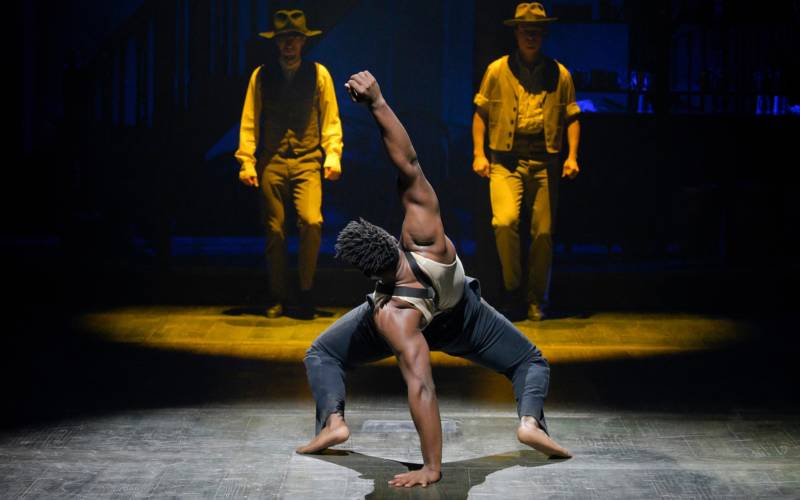New York is a city of neighborhoods, each with its own distinct personality. And Five Points, now fully subsumed into Manhattan’s Chinatown, was a notorious place in its time.
Home to the nation’s first tenement buildings—overcrowded towers of tiny apartments where new Irish emigrants lived side-by-side with a community of free blacks, single women, and other outliers—Five Points was largely dismissed by the Uptown establishment, even as the wealthy traveled there specifically to “slum.” But for thousands in the 1860s, Five Points was home, and within its closely quartered microcosm, a quiet revolution was taking place. Against the norms of the day, interracial marriages and friendships were common, and watering holes such as the female-operated Almack’s Dance Hall were places open to all: blacks, whites, and visitors alike.
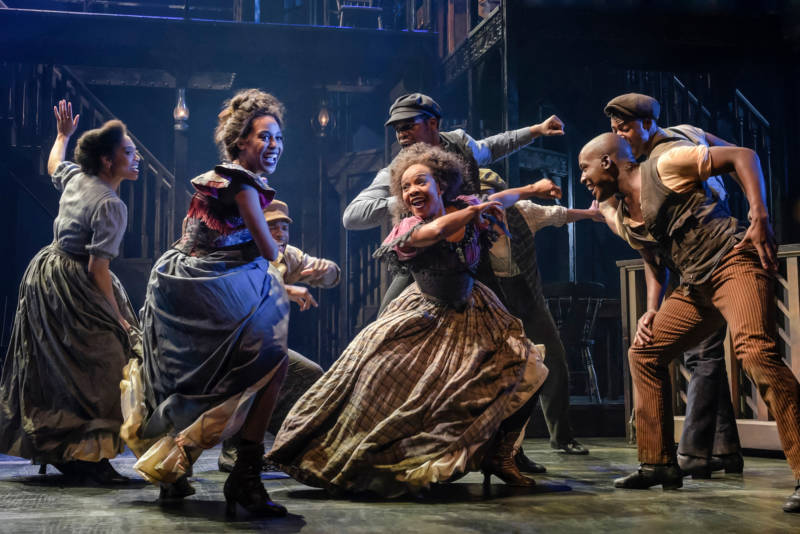
In Paradise Square—which opened at Berkeley Rep on Thursday—much of the musical is set in a dance hall such as Almack’s, run jointly by “Gentle” Annie (Madeline Trumble), the sister of the Irish proprietor Willie (Brendan Wall), who has been called to the Civil War, and his beloved, Nelly (Christina Sajous), a free woman of color from Louisiana. As times are hard, business isn’t exactly booming.
Enter American songwriter Stephen Foster (Jacob Fishel) looking for a job as piano player, and suddenly the bar fills with interested ears. That Foster must pretend to not be himself, as Nelly despises his regrettable plantation songs, doesn’t faze him. He’s eager to leave that part of his career in the past and immerse himself in the America of new possibilities, as embodied by the rough-and-tumble patrons of the saloon. With Foster at the keys, and the superior dance skills of Annie’s immigrant cousin Owen (A.J. Shively) and fugitive slave William Henry Lane (Sidney Dupont), the saloon stays busy. For a moment in time, all seems to be going well. Until, of course, it doesn’t, and “Paradise” is ripped asunder.
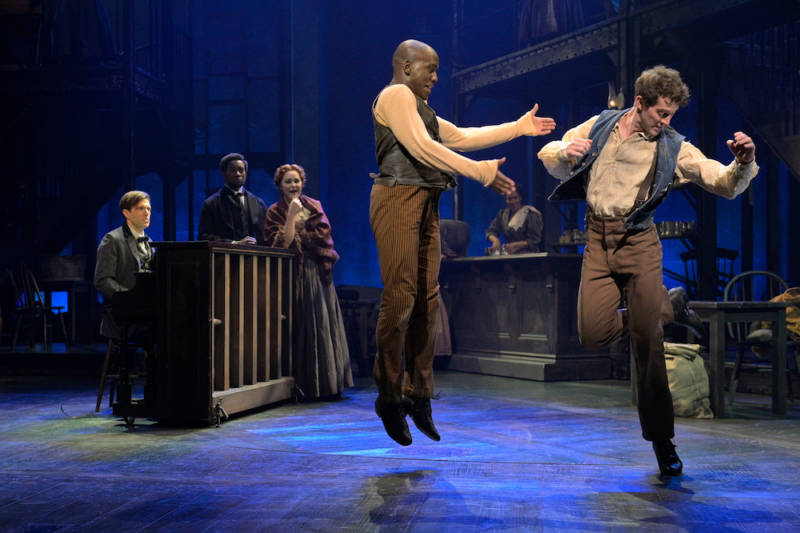
Characterized as much by their signature dance moves as their lines or reinterpreted Stephen Foster lyrics, the cast’s emotional terrain is frequently expressed physically. In the opening scene, a contingent of Civil War conscripts dance in slow motion with their loved ones and neighbors, a melancholy goodbye. In a stunning tableau crafted with saturated pools of light (courtesy of Donald Holder) and the elegant, muscular precision of Jacobi Hall (choreography by Bill T. Jones), the anguish of a life in bondage is reenacted through his every stretched sinew. A frenetic, high-stakes dance competition dominates the second act. The cast is blessed with a slew of these limber dancers—standouts including Garrett Coleman, Chloé Davis, Shively and Dupont—and there’s rarely a moment in the show where someone is not in glorious, urgent motion.
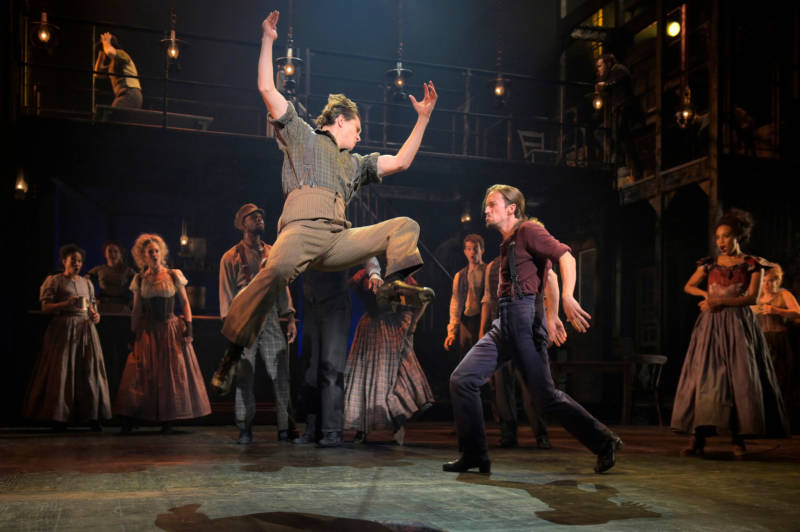
The music and lyrics (arranged by Larry Kirwan and Jason Howland, lyrics by Nathan Tysen), all based on Foster’s extensive oeuvre, are both refreshingly revelatory and earworm familiar. Especially haunting, as the Civil War rages on, are the songs of war and death, reworked to reflect the inner torments and outer struggles of an underclass pushed to their limits of tolerance. When A.J. Shively sings that he will not die in the springtime, it morphs from introspective ballad to battlecry of defiance. Foster’s love songs are among his most popular offerings, and the feminist reinterpretations of both “Gentle Annie” and “Janey with the Light Brown Hair” are among the show’s best. William Henry Lane’s tribute to his love, “Angelina Baker,” gives a voice to the language of the heart. And a gracious rendition of “Beautiful Dreamer,” perhaps Foster’s last song, contains the perfect, shimmering note upon which to end the show.
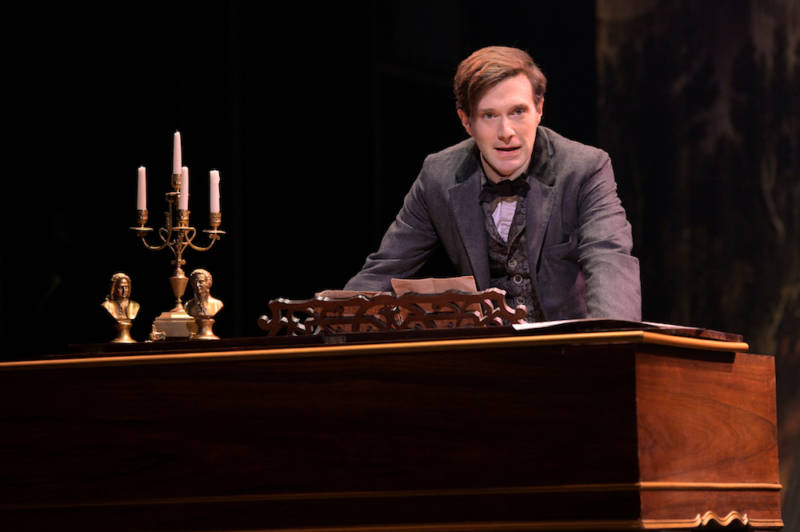
Where the show does suffer is in the balancing act between storytelling and messaging (with Larry Kirwan, Craig Lucas, and Marcus Gardley all taking a turn on the bookwriting). Not only must our onstage Stephen Foster justifiably repent for the racist overtones of his bestselling plantation songs, he’s then taken to task for presuming to tell someone else’s story through a later song (later only in context of the play; the actual song was written more than ten years earlier). It’s not an invalid point—except that the entire production of Paradise Square is an attempt to tell the stories of others through song. And if one of the heralded purposes of art is to hold a mirror up to the world(s) we live in, and to tell the stories of the many, determining who does and does not have the “right” to do so is always going to be a contentious sticking point.
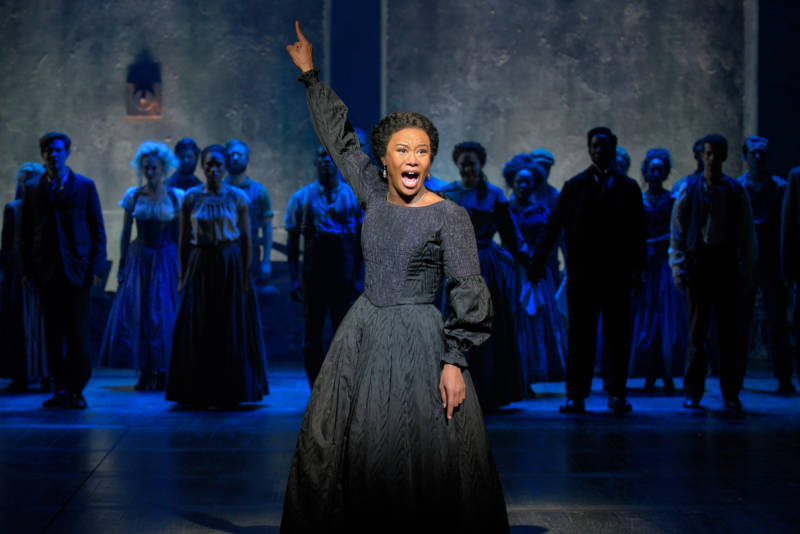
As for that final shimmering note of “Beautiful Dreamer?” It’s buried beneath an ill-conceived spate of third-person exposition detailing the historical significance of the Five Points neighborhood, as if we hadn’t just watched a two-and-a-half hour show embodying that same significance. Again, valid points are made. But frankly, this spoon-feeding saps the strengths from the production, and the sooner they throw such caution to the winds (and the cutting room floor) the better the show will be for it.
